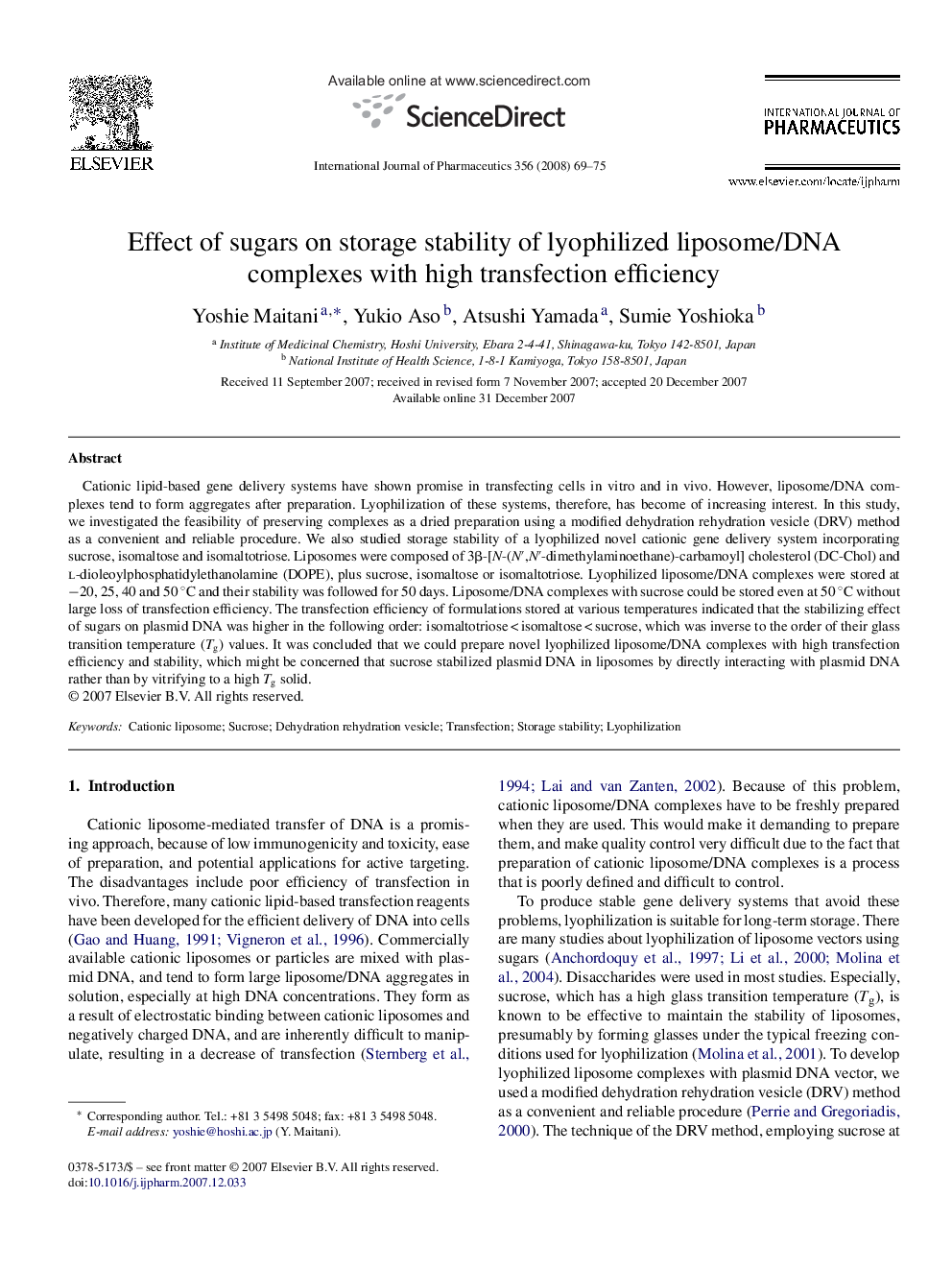| Article ID | Journal | Published Year | Pages | File Type |
|---|---|---|---|---|
| 2505432 | International Journal of Pharmaceutics | 2008 | 7 Pages |
Cationic lipid-based gene delivery systems have shown promise in transfecting cells in vitro and in vivo. However, liposome/DNA complexes tend to form aggregates after preparation. Lyophilization of these systems, therefore, has become of increasing interest. In this study, we investigated the feasibility of preserving complexes as a dried preparation using a modified dehydration rehydration vesicle (DRV) method as a convenient and reliable procedure. We also studied storage stability of a lyophilized novel cationic gene delivery system incorporating sucrose, isomaltose and isomaltotriose. Liposomes were composed of 3β-[N-(N′,N′-dimethylaminoethane)-carbamoyl] cholesterol (DC-Chol) and l-dioleoylphosphatidylethanolamine (DOPE), plus sucrose, isomaltose or isomaltotriose. Lyophilized liposome/DNA complexes were stored at −20, 25, 40 and 50 °C and their stability was followed for 50 days. Liposome/DNA complexes with sucrose could be stored even at 50 °C without large loss of transfection efficiency. The transfection efficiency of formulations stored at various temperatures indicated that the stabilizing effect of sugars on plasmid DNA was higher in the following order: isomaltotriose < isomaltose < sucrose, which was inverse to the order of their glass transition temperature (Tg) values. It was concluded that we could prepare novel lyophilized liposome/DNA complexes with high transfection efficiency and stability, which might be concerned that sucrose stabilized plasmid DNA in liposomes by directly interacting with plasmid DNA rather than by vitrifying to a high Tg solid.
